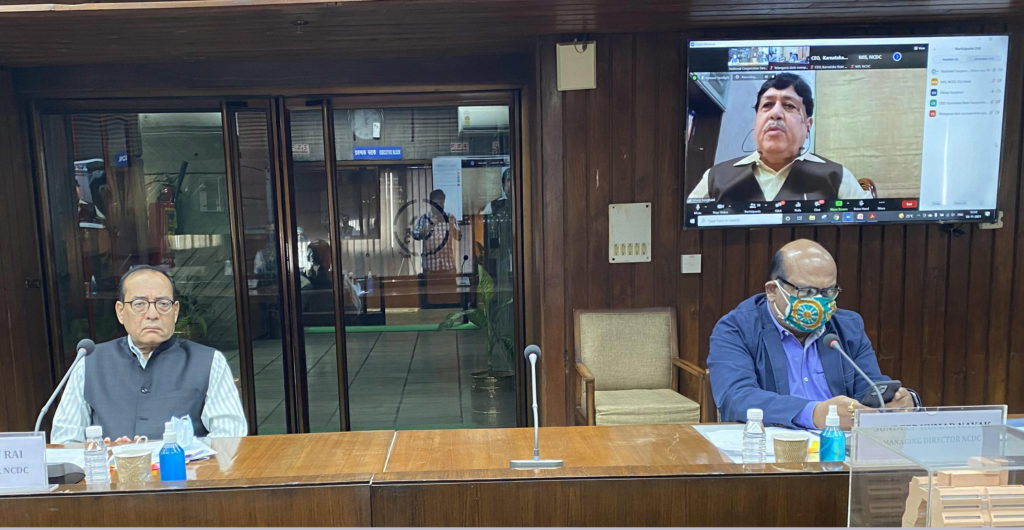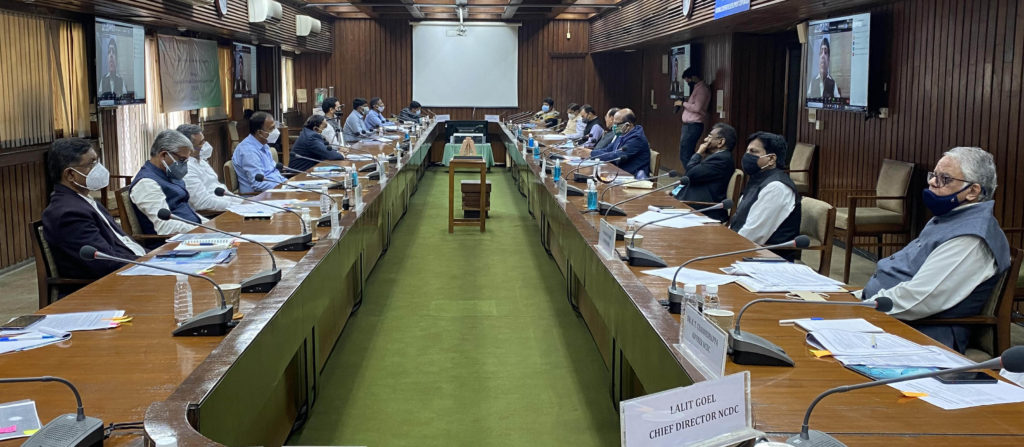Faced with the possible threat of cyber assaults in expanding digital era accelerated by Covid-19 disruptions, cooperative societies including banks whether small or big across the country can now look towards a comprehensive Cyber-Security Framework laid out by the National Cooperative Development Corporation (NCDC) to secure their operations from crooks lurking in the cyber world.
The Framework provides a roadmap and enlisting Do’s and Don’ts regarding security assets, Identify, Protect, Detect, Respond and Recover as the pillars of securing networks to the cooperatives. The move comes close on the heels of the Centre’s decision to chalk out an action plan aiming to computerize all Primary Agricultural Credit Societies (PACS) across the country and link them with District Central Cooperative Banks, State Apex Cooperative Banks and NABARD.
“As the digital scenario widens, more so due to Covid-19 induced norms, it becomes important for every cooperative to have an adequate cyber defence mechanism lest they fall victim to the hackers. On our part, we have prepared the Framework, draft of which was discussed threadbare among stakeholders from the cooperative sector at a meeting held recently and adopted with some suggestions”.
“The 42-page Framework aiming to provide guidance to an organization on managing cyber-security risk is now available for implementation by all DCCBs and SCBs” said Sundeep Nayak, Managing Director of the NCDC.
At the meeting held in hybrid mode under the Cooperative Institutions Cyber-security Advisory Forum (CICAF) of the NCDC, former national cyber security coordinator, Dr Gulshan Rai, the brain behind the policy, said the framework “Cyber-security and IT Guidelines for User Interaction” having four levels aims to provide for systems and structures that need to be set up in an organization; provides for steps to be in place / to be taken to secure and protect the system / IT assets.


The Framework provides guidance to an organization on managing cyber-security risk, in a manner similar to financial, safety, and operational risk, he added.
“The Framework is not a one-size-fits-all approach for all critical organizations in the sector as each one’s risk is unique. Rather, it aims to improve an organization’s cyber-security risk management as well as those without an existing cyber-security program can use it as a reference when establishing one ,” Nayak said at the meeting which was well attended by cyber security heads and representatives of wide spectrum of cooperatives including the cooperative banks from States like Kerala, Karnataka, Himachal Pradesh, Maharashtra and Uttar Pradesh besides NAFED, KRIBHCO and NCDC officials among other IT experts from the sector.
Currently, there are about 65,000 PACs which the Centre plans to increase to more than 3 lakh in the next five years to realize the vision of making the country Atmanirbhar or self-reliant.
Former Union Fertilizer Secretary and senior advisor to NCDC, Dr Chhabilendra Roul termed the NCDC move ‘a good beginning’ in bringing the Framework since cyber predators are always ahead of the IT developers, while Dr Rajeev Ranjan, former Union Fisheries Secretary and currently senior advisor to NCDC emphasized on “ensuring adequate infrastructure to the smaller cooperatives and business who without a significant IT or information security budget could struggle to ensure a web security.” Ranjan was special secretary of the GST Council which was instrumental in switching over the country’s economy from VAT system to the GST one.
Dileep Sanghani, President, National Cooperative Union of India (NCUI) called for training, guidance and capacity building as a need of the hour besides creating awareness like holding webinars among the stakeholders particularly smaller cooperatives, on the other hand Prasoon Kumar Das, APRACA Secretary General emphasized on having crystal clear policies, ecosystem auditing of all the areas in the sector as well as providing incentives to the players.














































